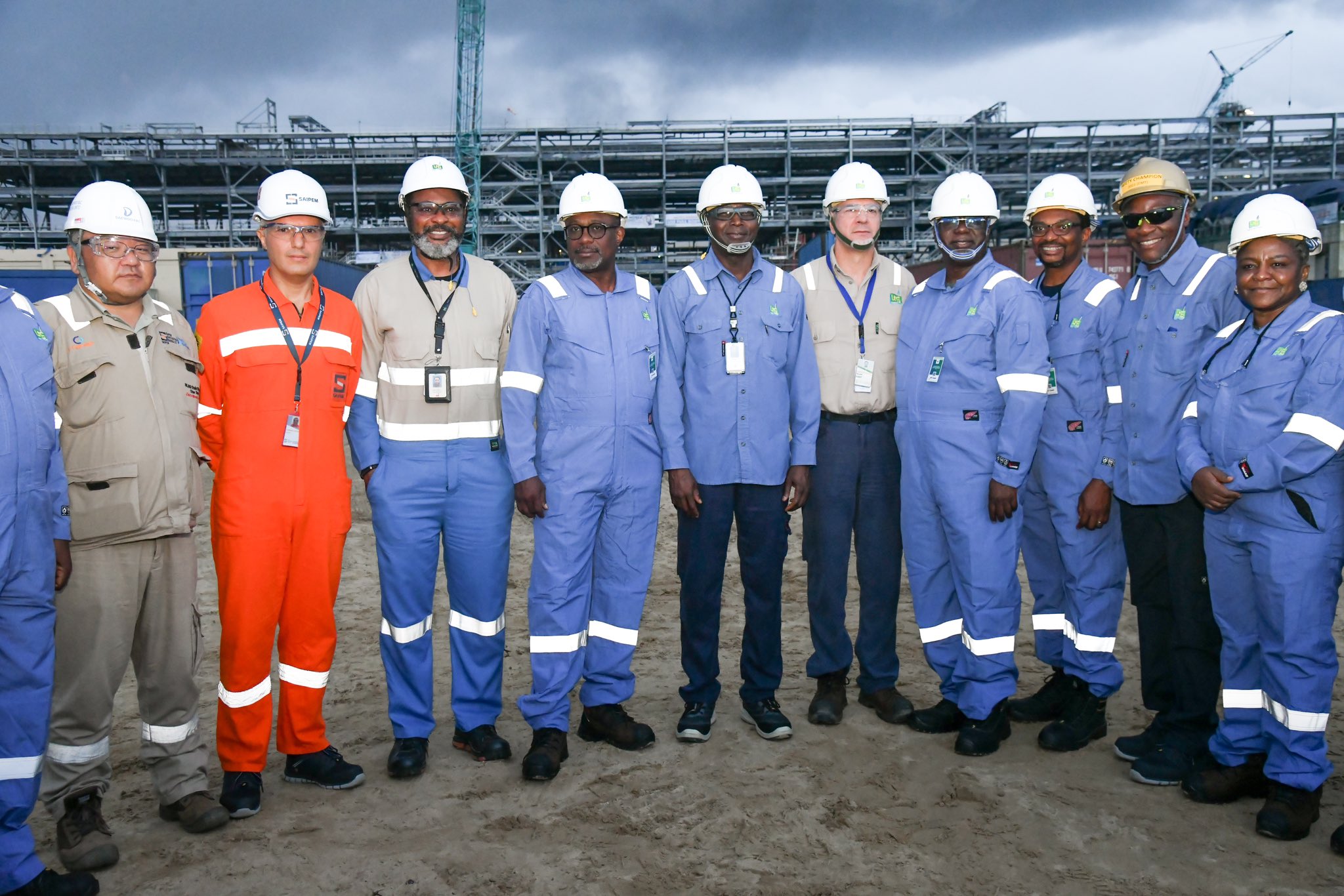The Nigeria Liquefied Natural Gas (NLNG) Train-7 project has reached 52% completion, as Africa’s leading oil producer pushes to boost its gas sector and increase its revenue from gas exports.
The multi-billion dollar NLNG Train-7 project is an expansion under construction at the 22.5 mtpa NLNG Terminal in Bonny Island, Rivers State. The project aims to increase capacity by an additional 7.6 mpta of LNG by building a seventh train of 4.2 mtpa capacity and debottlenecking the existing trains.
But despite the substantial progress made in constructing Train-7, concerns remain over the future feedstock.

These were notably voiced during an engagement session between the Executive Secretary of the Nigerian Content Development and Monitoring Board (NCDMB), Engr. Simbi Kesiye Wabote and Dr. Philip Mshelbila, the Managing Director of NLNG, at the gas company’s operational base at Bonny Island. NLNG management expressed concerns over the delay in initiating deep-water gas projects that are intended to supply feed gas for Train-7 and future expansions. This delay means the facility could be completed without a gas source for liquefaction.
Mshelbila said NLNG is already facing difficulties in getting adequate gas supply, resulting in its six plants –Trains 1 to 6 – producing below 50% of their total installed capacity. Data collected by Hawilti shows that the facility was already operating at only 65% last year.
While feed gas to the NLNG plants comes mainly from some of its joint ventures (JV) partners, including Shell Petroleum Development Company (SPDC) Limited, Total Energies and Nigerian Agip Oil Company (NAOC), Mshelbila said supplies have suffered disruptions due to recurrent vandalism of pipelines, facility failures and low production from aging wells.
According to Mshelbila, NLNG is exploring several options to mitigate the challenge, including partnering with critical security agencies to curtail vandalism on the pipelines and working with their JV partners to increase their gas production.
To boost performance of Trains 1 to 6, Mshelbila said the Board of Directors at the NLNG has approved for the company to procure gas from other international and indigenous gas producers.

